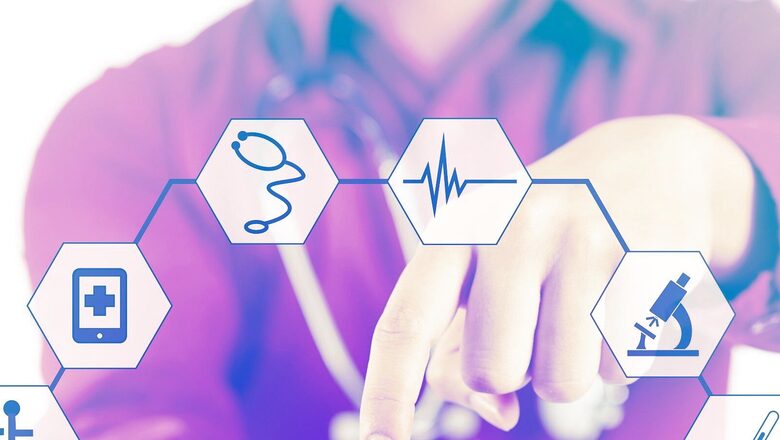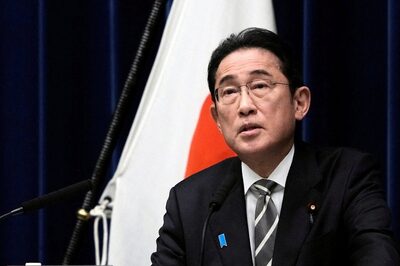
views
India has generated around 14 crore health IDs under the National Digital Health Mission (NDHM), a scheme that will enable Indians to create and access digital health records. The Narendra Modi government’s flagship scheme is envisioned as the first step towards universal health coverage.
According to the mission’s head, Dr RS Sharma, chief executive officer at the National Health Authority (NHA), the programme has shown “good progress” since its national roll-out by Prime Minister Modi on September 27. Its pilot was also launched by the PM on August 15, 2020. Sharma spoke to News18.com in an exclusive interview.
The mission, under which every Indian will get a unique 14-digit health identification (ID) number, renamed as the Ayushman Bharat Digital Mission from NDHM, will create a digital health ecosystem with a personal health ID for every Indian, identifiers for doctors and health facilities and personal records.
The scheme will remain a “voluntary” programme, according to Sharma, giving the citizens a choice to build their digital health IDs and link their medical records.
“The experience in UTs was extremely good and this time has been utilised fruitfully for creating the components and building blocks for the digital mission,” he said, adding, “Now, we are ready and making health IDs under the mission. Things are happening at a very fast pace. A public dashboard may be out soon (to show the progress under the scheme such as in CoWIN), we are working on it.”
While more than 13 crore health IDs have already been created, there is no target and deadline to achieve more. “We don’t have a target as ultimately it’s all voluntary. It depends on how useful and attractive people find this,” said Sharma. “But I am quite sure that it will attract people as it will allow them to link health records, in a way help better diagnosis, affordable treatment.”
Going forward, Sharma believes that “Ayushman Bharat will certainly be a part of this mission. We are building a health claim exchange also that will help the insurance industry, start-ups and patients. It’s a win-win situation for everybody.”
How experience in UTs helped shape the national roll-out
Government data shows that the platform has boarded more than 3,000 hospitals and 3,400 doctors.
In the coming months, PM-DHM will be linked to the government’s health insurance scheme Pradhan Mantri Jan Arogya Yojana, also known as Ayushman Bharat.
“During the pilot phase, we have been developing many of the artefacts or you can say components. There are many general-purpose digital goods developed in the country such as Aadhaar, digital payment technology UPI, electronic KYC, digital consent artefact and digital locker,” Sharma said.
These are all the pieces of the larger project, Sharma said, while explaining how they will play a crucial role in putting PM-DHM together.
“For instance, a doctor in teleconsultation would first need to establish trust. He would like to know the real identity of his/her patients. This is where electronic KYC will be used. He/she would need access to the patients saved digital health records where consent from the patient would be required. His/her fees can be paid UPI. Some of these components were already here and then we created a number of other things such as personal health records (PHR). One can create a longitudinal history of their own health records by linking them to health ID,” Sharma said. “The platform established for the registry of doctors would ensure that the doctor is actually qualified and registered, not a quack. The other registry of healthcare facilities would ensure that the hospitals registered under PM-DHM are run by qualified doctors.”
Sharma said that all these components were brought together and tested during pilot projects in six union territories.
How health ID will help Indians
Health ID, according to Sharma, will help in increasing the access to healthcare across remote locations in India suffering from the shortage of doctors.
“There are some remote areas where there are no doctors. With the scheme, we will be able to go to rural areas. Then people don’t need to travel all the way for diagnoses or consultations, hence increasing the quality of diagnoses and boosting affordability,” he said. “The quality of healthcare will increase as doctors will not be flooded with patients at one site.” He added that once a history of medical records is built, it will phenomenally improve the quality of diagnosis and treatment.
“Basta leke chalte ho… Zaruri report reh gayi (You go to the doctor with a bagful of reports but the critical report goes missing), he said. “But no more, if all reports are linked, the progress of health can be seen immediately.”
Read all the Latest India News here




















Comments
0 comment